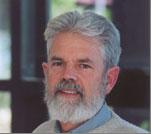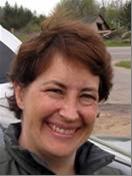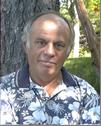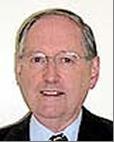Scientific Review Panel
Panel members review research in the Bushfire CRC. The Panel's task is to assess the academic quality, and the scientific rigour associated with Bushfire CRC research papers.
The Scientific Advisory Panel comprises people who are or were previously engaged in research considered relevant to the work of the Bushfire CRC and who are highly regarded by their peers.
Prof Rob Whelan, Dean of Science, University of Wollongong
 At the University of Wollongong, Rob Whelan has developed a research group focussing on two main research programs - fire ecology and conservation biology. He has worked in these research areas in eastern and western Australia, North America, the UK and Brazil.
At the University of Wollongong, Rob Whelan has developed a research group focussing on two main research programs - fire ecology and conservation biology. He has worked in these research areas in eastern and western Australia, North America, the UK and Brazil.
In 1995, he published a research monograph The Ecology of Fire (Cambridge University Press, Cambridge), reviewing the ecological effects of fire in ecosystems across the world.
Rob was a Council member of the Ecological Society of Australia and editor of its journal (The Australian Journal of Ecology) from 1984-'89, and then Vice President of the Society from 1996-'99. He served on the Editorial Board of Ecological Abstracts (Elsevier) from 1990-2000. He has had several responsibilities for the Australian Research Council, including the Research Training and Careers Committee (1995-'97), the Discipline Review of the Biological Sciences (1997-'98) and the Biological Sciences and Biotechnology Expert Advisory Committee (2001-03).
He has served on a number of government advisory committees including the NSW Govt. Forest Advisory Council (1996-2000) and the National Parks Advisory Council (1997-current).
Sarah McCaffrey, Research Social Scientist, USDA Forest Service
 Sarah conducts and coordinates research to better understand the social dynamics of fire management. She is currently responsible for a National Fire Plan grant examining social acceptability of fuels treatment methods in the US. She has initiated almost two dozen studies in a variety of ecological and geographical settings across the country, examining a range of topics including what shapes acceptability of prescribed fire and thinning, why people do or do not implement defensible space practices, and social issues around post-fire restoration. She has a part of the Fuels Planning synthesis project, a national effort to synthesize current scientific knowledge on fuels treatments from both the ecological and social perspectives and provide it to managers in accessible format.
Sarah conducts and coordinates research to better understand the social dynamics of fire management. She is currently responsible for a National Fire Plan grant examining social acceptability of fuels treatment methods in the US. She has initiated almost two dozen studies in a variety of ecological and geographical settings across the country, examining a range of topics including what shapes acceptability of prescribed fire and thinning, why people do or do not implement defensible space practices, and social issues around post-fire restoration. She has a part of the Fuels Planning synthesis project, a national effort to synthesize current scientific knowledge on fuels treatments from both the ecological and social perspectives and provide it to managers in accessible format.
Sarah is exploring issues around the social dynamics of fire management. Possible research projects include biomass utilization, effectiveness of initiatives to foster management across boundaries such as The Nature Conservancy's Fire Learning Network, and issues related to institutional knowledge and organizational effectiveness. She also hopes to develop collaborative research with scientists in other countries with wildfire issues.
Colin O'Loughlin, Consultant, Forestry and Science
Colin has a background in forestry research, particularly in forest hydrology and environmental forestry and management of research organisations. In the late 1950s and 1960s he worked with the Forest and Range Experiment Station researching hydrological and erosion processes in the hill and high country of Canterbury and other regions in New Zealand.
From 1987 until 1992 Colin was responsible for the total performance of the Forest Research Institute, NZ’s major forestry research organisation.
Since 1992 he has worked as a private consultant in forestry and science in both New Zealand and internationally. He has been on the Editorial Board of the New Zealand Journal of Forestry for over a decade.
In 1998 he was appointed a founding member of the New Zealand Fire Service’s Research Advisory Committee which appraises research proposals for funding from the New Zealand Fire Service’s research fund and makes recommendations to the New Zealand Fire Commission concerning proposals that are worthy of funding and the levels of funding that should be allocated. He has continued to work in this role to the present time. This work has provided him with a broad understanding of problems and issues related to the prevention, prediction and control of rural and urban fires and the impacts fires inflict on individuals and communities. He is particularly interested in the prevention, prediction and control of forest fires.
Brian Stocks, President, B.J. Stocks Wildfire Investigations

During the first 20 years of his career, Brian Stock's research activity covered many aspects of forest fire research, but centred on field investigations into the influence of fuels and weather on forest fire behaviour and the development of the Canadian Forest Fire Danger Rating System. Brian is the author or co-author of more than 130 scientific papers covering many aspects of forest fire and global research. Over the past decade, Brian has become heavily involved in cause-and-effect relationships between forest fire and global change. This includes research into projecting boreal forest fire regimes under a changing climate and investigations into the impact of biomass burning on global atmospheric chemistry, studies that require extensive cross-disciplinary international cooperation.
Brian was the senior fire research scientist within the Canadian Forest Service representing Canada on the United Nations Team of Fire Specialists. He serves on biomass burning and atmospheric chemistry steering committees of the International Global Atmospheric Chemistry and Global Change and Terrestrial Ecology projects of the International Geosphere–Biosphere Program, chairs the Fire Research Section of the International Union of Forest Research Organizations, and chairs the Fire Working Group of the International Boreal Forest Research Association.
Ian Ferguson, Professor Emeritus School of Forest and Ecosystem Science, Faculty of Land and Food Resources, University of Melbourne
 Teaching: Environmental management systems and policy; forest economics, forest policy.
Teaching: Environmental management systems and policy; forest economics, forest policy.
Research: Forest and environmental policy; management and economics; biometry.
Other professional interests:
Fellow, Australian Academy of Technological Sciences and Engineering
Fellow, Institute of Foresters of Australia
Fellow, Parks and Leisure, Australia
Fellow, Institute of Wood Science (U.K.)
Director, CRC Forestry Ltd 2005
Director, Tiaki Plantation Co (NZ) 2004-
Chair and Independent Director, Taswood Growers, 1999-2005
Director, Hancock Victorian Plantations Pty Ltd 1998-
Dep Chair and Director, Forests and Wood Products Corporation, 2000-2003
Dr Neil Burrows, Science Director, Dept of Environment and Conservation, Western Australia.
 Dr Burrows has combined interests in fire behaviour and fire ecology with feral animals.
Dr Burrows has combined interests in fire behaviour and fire ecology with feral animals.
Dr Burrows is a member of the Institute of Foresters of Australia, a member of the International Association of Wildland Fire and member of the Royal Society of Western Australia. He has worked for 25 years as a fire research scientist in WA, researching the behaviour and some ecological effects of bushfires in pine plantations, native forests and banksia woodlands.
In 1994, he completed a PhD at ANU on the behaviour and impact of bushfires in jarrah forests. This research contributed to bushfire management. In the 1990s, he studied the behaviour and effects of fires in hummock grasslands of the Gibson and Great Sandy Deserts and examined the use of fire by Aboriginal people. This work was related to testing the hypothesis that changed fires regimes contributed to mammal declines and extinctions in the arid zone.
Dr Burrows has combined interests in fire behaviour and fire ecology with feral animals and has worked on a mammal reintroduction program in the Gibson Desert and later on developing techniques for controlling feral cats.
Scott Stephens, Associate Professor of Fire Sciences, ESPM Department - Division of Ecosystems Sciences, University of California Berkeley
 Scott Stephens is interested in the interactions of wildland fire and ecosystems. This includes how prehistoric fires once interacted with ecosystems, how current wildland fires are affecting ecosystems, and how future fires and management may change this interaction. He is also interested in wildland fire policy and how it can be improved to meet the challenges of the next decades. How fire will be affected by climate change is a new area of his research.
Scott Stephens is interested in the interactions of wildland fire and ecosystems. This includes how prehistoric fires once interacted with ecosystems, how current wildland fires are affecting ecosystems, and how future fires and management may change this interaction. He is also interested in wildland fire policy and how it can be improved to meet the challenges of the next decades. How fire will be affected by climate change is a new area of his research.
Currently there is substantial debate on how or if land managers should reduce fuel hazards or engage in salvage logging and have given testimony on this topic on three occasions at the US House of Representatives Subcommittee on Forest and Forest Health and Subcommittee on National Parks and Public Lands. He believes the central question in this debate is the definition of desired future conditions for our diverse ecosystems. Once we have this then we must decide what management tools are appropriate to achieve and maintain the desired conditions.
Current Projects include work in the Sierra San Pedro Martir Mountains, Mexico, the Sierra Nevada Adaptive Management Project, and Fire and Fire Surrogates Treatments for Ecological Restoration.
Max MoritzAssistant Cooperative Extension Specialist in Wildland Fire and Adjunct Assistant Professor Environmental Science, Policy and Management, University of California , Berkeley. Department of Environmental Science, Policy, and Management, Division of Ecosystem Sciences
 Max Moritz's job as the Cooperative Extension Specialist in Wildland Fire at UC Berkeley is the first Cooperative Extension position in the US that is completely focused on fire issues.
Max Moritz's job as the Cooperative Extension Specialist in Wildland Fire at UC Berkeley is the first Cooperative Extension position in the US that is completely focused on fire issues.
Max provides general leadership for the outreach and applied research program within UC’s Division of Agriculture and Natural Resources (ANR), and has been supported by the California Department of Forestry and Fire Protection, members of the State Firesafe Council, the Fire Workgroup, and many others. Max has broad expertise in firemodelling, fire effects, brushland fire ecosystems and spatial patterns of fire disturbance.
Brian Richardson, General Manager, SCION (New Zealand Forest Research Institute Ltd)
 Brian Richardson was the General Manager of Ensis Forest Biosecurity and Protection whilst Ensis was an unincorporated joint venture, and now Brian represents the New Zealand group that also includes Forest sciences more broadly.
Brian Richardson was the General Manager of Ensis Forest Biosecurity and Protection whilst Ensis was an unincorporated joint venture, and now Brian represents the New Zealand group that also includes Forest sciences more broadly.
The purpose of Forest Biosecurity and protection science is to undertake research that will help to protect forests from damage caused by insect pests, pathogens, weeds, other biological agents, fire, and wind.
David Flinn, Principal Fellow and Associate Professor
David Flinn commenced his career as a research scientist in the Forests Commission Victoria before becoming Director of the Centre for Forest Tree Technology (a Victorian Government Research Institute) and inaugural Director of the Forest Science Centre alliance between CFTT and the Department of Forestry of the University of Melbourne.
He was also an Adjunct Professor of Forestry (University of Melbourne). He retired in March 2000 to work as a private consultant within Australia and assist the International Union of Forest Research Organisations (UFRO).
He is the author of over 60 scientific publications and was awarded the Commonwealth Forestry Association Medal (Asia-Pacific Region) in 2000 for excellence in forest management.


